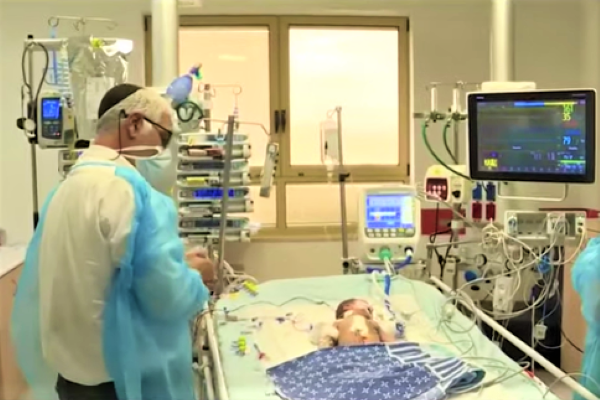Hospital offers remote at-home monitoring of infants with complex heart defects from Israel, PA, Gaza, Iraq, Kurdistan and Cyprus.
By Abigail Klein Leichman, ISRAEL21c
At-home monitoring of babies born with complex heart malformations has been shown to reduce mortality from 15 percent to less than 5 percent.
A new partnership between med-tech startup Datos Health and The Heart Institute at Sheba Medical Center’s Safra Children’s Hospital now offers remote home monitoring of pediatric cardiac patients in medically underserved communities: Israel’s ultra-Orthodox sector, the Palestinian Authority, Judea and Samaria, Gaza, Iraq, Kurdistan and Cyprus.
“We are proud to offer this new program to families in Israel and beyond to improve the care and survival of children born with complex heart conditions,” said Dr. Yoav Bolkier, senior pediatric cardiologist at Sheba, the largest medical center in the Middle East.
Datos Health, a member of Sheba’s ARC (Accelerate, Redesign, Collaborate) Telemedicine Hub, developed the connected platform with clinicians from The Heart Institute to track these fragile infants between hospital visits and enable proactive care in areas lacking adequate medical infrastructure.
“Being able to provide this program remotely means that we can truly break through physical boundaries and even borders to help those children that need us most,” said Iris Shtein, codirector of the Telemedicine Hub at ARC.
Parents of babies in the virtual clinic will receive devices for measuring weight, oxygen saturation, pulse and blood pressure, which they will transmit every day via a connected tablet.
“This remote monitoring program is another hybrid service ARC has been developing as part of Sheba’s overall strategy to transform healthcare and improve quality, access, and health equity in Israel and around the world,” said Dr. Eyal Zimlichman Chief Medical Officer and Chief Innovation Officer at Sheba Medical Center and founder of ARC.
